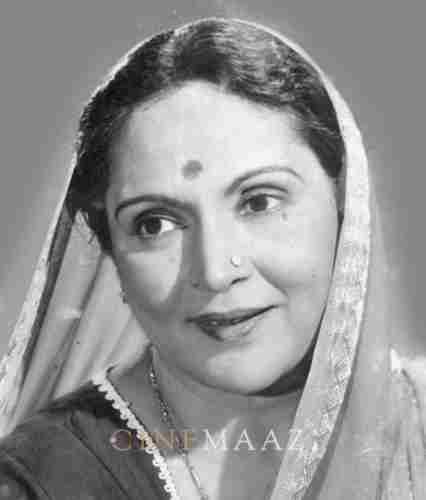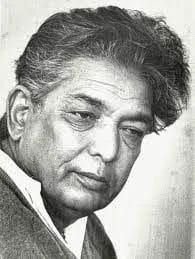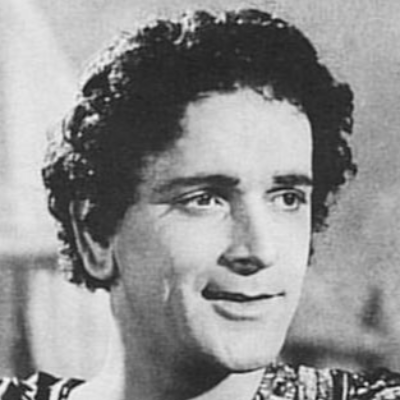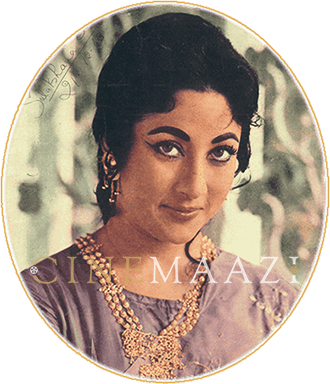Pandit Betaab
Subscribe to read full article
This section is for paid subscribers only. Our subscription is only $37/- for one full year.
You get unlimited access to all paid section and features on the website with this subscription.
Not ready for a full subscription?
You can access this article for $2 , and have it saved to your account for one year.
- Real Name: Narayan Prasad Betaab
- Born: 1872
- Died: 1945
- Primary Cinema: Hindi
Poet, playwright, screenwriter and lyricist Narayan Prasad ‘Betaab’ is known for films such as Devi Devayani (1931), Radha Rani (1932), Zehari Saap (1933), Sitamgarh (1934), Veer Babruwahan (1934), Barrister's Wife (1935), Keemti Aansoo (1935), Sipahi Ki Sajni (1936) and Prabhu Ka Pyara (1936). While the mythological dramas he penned earned huge profits for his employers, the Bombay Parsi theatre's Alfred Company and Madan Theatres of Calcutta, he went on to create Hindi versions of original screenplays. He also wrote the lyrics for approximately 217 songs for 25 films. His influential version of the Mahabharat for the Khatau-Alfred company (1913) articulated the efforts of low-caste groups and championed untouchables. He thus inaugurated what the critic Agyaat called the Betaab Yug (c.1910-35).
Narayan Prasad Betaab was born in 1872 into a sweet-maker’s family, four years after the commercial activities of the Parsi theatre began in 1868. Going on to become a playwright for Parsee theatre and scenarist mainly for the Ranjit Studio, the plays Meetha Zaher (1905) and Zehari Saap (1906) which he had originally penned for the Parsee Natak Mandali were highly successful. They went on to be staged extensively as well as filmed.
Living during an extraordinary time, modernity was seeping into the fabric of small-town society via religious reform, caste mobilisation, and public entertainment. What’s more, the movement for India's Independence saw diverse sectors come together under the common cause of the anti-colonial struggle. Increasingly Hindi—not Hindustani or Urdu—became the medium of expression. Betaab's career was impacted by the major changes occurring around him. After a brief period composing folk verse, he sought training as a poet of Urdu ghazals. He used that language to compose social melodramas, Shakespearean adaptations, and Indo-Islamic romances in his first decade as a playwright. When he came under the influence of the Arya Samaj, his orientation switched toward Hindi and the Hindu mythological genre. This resulted in his influential version of the Mahabharat. Interpreting the epic within the frames of nationalism and reformist Hinduism, he also articulated the efforts of low-caste groups and championed untouchables. Using the mythological genre via his best-known play, Mahabharata, for the Khatau-Alfred company (1913), he inaugurated what the critic Agyaat called the Betaab Yug (c.1910-35). Betaab’s reworking of the mythological genre proved to be hugely influential, coloured mainly by his Brahminical leanings.
Betaab's mythological dramas earned huge profits for his employers, the Bombay Parsi theatre's Alfred Company and Madan Theatres of Calcutta. Betaab also created Hindi versions of original screenplays. After working at Ranjit, he wrote scripts for Madan, Ambika, Sharda and Saroj Studios. He is credited with writing the dialogues of films such as Sipahi Ki Sajni, Barrister's Wife, and the screenplay of Sitamgarh, and Zehari Saap among other films. Among the films he penned lyrics for Devi Devyani (1931), Radha Rani (1932), Zahari Saap (1933), Toofani Taruni (1934), College Girl (1935), Barrister’s Wife (1935), Raj Ramani (1936), Chalak Chor (1936), Kal Ki Baat (1937), Prithvi Putra (1938), Sneh Bandhan (1940), and Parshuram (1947).
Narayan Prasad Betaab passed away in 1945. His rags-to-riches tale, The Deeds of Betab, expresses the restless desire for opportunity that many youths from bleak backgrounds would also have experienced. Betaab’s autobiography is the earliest from the Parsi theatre. It depicts scenes of stark deprivation, as well as documents the rising fortunes of a driven, small-town writer. His definitive biography by Vidyavati Namra was released in 1972.
References
Additional information courtesy: indiancine.ma, https://www.cambridge.org/core/books/stages-of-life/narayan-prasad-betab-the-deeds-of-betab








.jpg)



